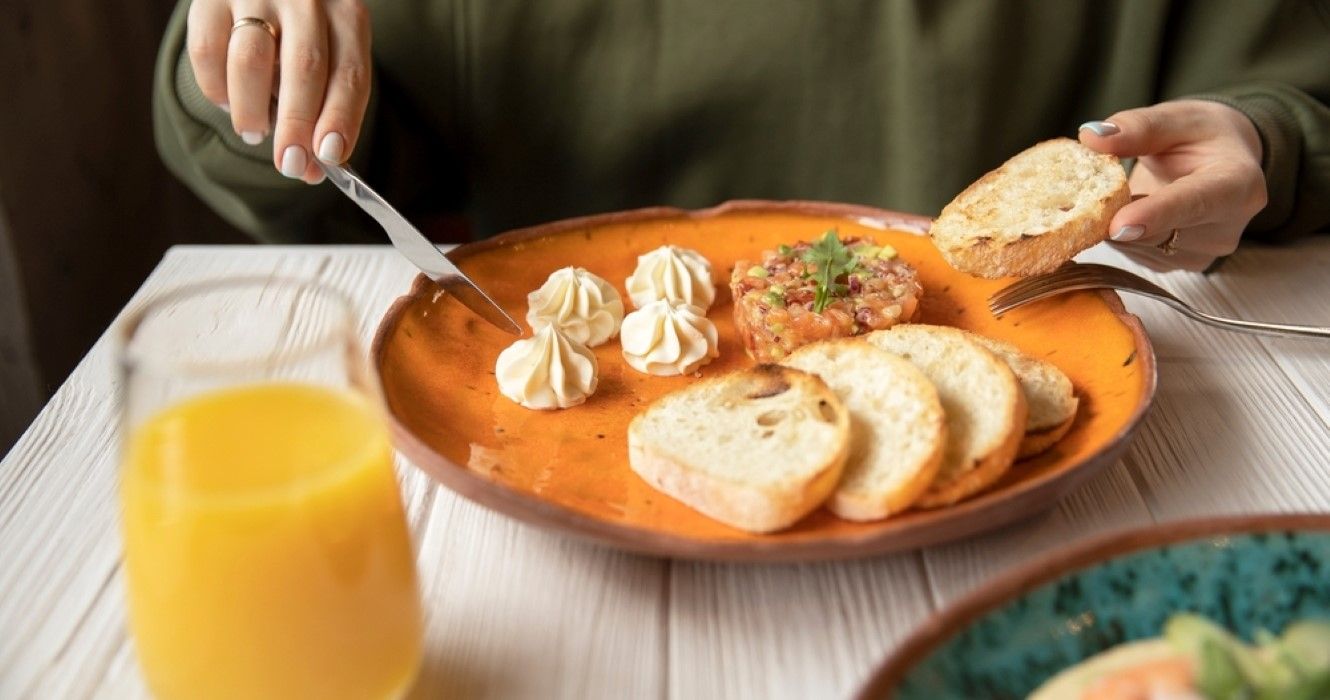
Our culture dictates our ingrained etiquette but cultural conditioning changes as per the culture. How an individual sits, behaves, or eats at the table is always due to their culture. However, we should keep a note of unique etiquette in various cultures in order to prevent offending and respecting it. The blending of cultures can help us know each other well, although one should know the Do’s and Don'ts for it, right? Here is a guide to “Unique Food Etiquettes” that every traveler should know for a flowing cultural experience.
10 Leaving Food On The Plate In China
If the food is really scrumptious, one might end up eating the meal completely. However, the tradition of leaving little food on your plate after dining is quite prevalent in China. It is believed that a cleaned plate beckons that one is still hungry, and the host did not serve enough food. Leaving a little amount of food behind states that you are grateful to the host and that the meal was fulfilling. It is considered rude to clean the plate completely, which is completely the opposite in Western countries.
9 Eating Meals With Hands In India
Just like cutlery plays a prominent role in Western Culture’s dining, eating with hands is seen in large swathes of regions across the world too. In India, people eat their meals with their right hand traditionally and state that the integrity of certain Indian cuisines like Dosa, Samosas, Dal Chawal, Curries, and Rice can be enjoyed thoroughly with hands. As per Hindus, the five fingers represent the five elements which are water, air, fire, earth, and space, and thus, it helps to connect deeper connection with food, and as per Muslims, everyone eating from the same plate underlines egalitarianism. However, the urban culture has started adopting western traditions.
8 Slurping Noodles In Japan
Slurping may be considered rude in some cultures, but in Japan, it is highly appreciated. Slurping soup or noodles is a sign of admiration towards the chef and also, and it is recommended to prevent crossing chopsticks when not in use. One must also remember not to keep the chopsticks upright in the rice bowl. The reason behind this is that the rice bowl of the deceased person is kept before their coffin, and the chopsticks are placed upright at that time. So it is unacceptable in natural settings.
7 Do Not Clink Glasses In Hungary
Generally, we raise a toast during a celebration and clink the glasses, but this should definitely be avoided in Hungary. The reason behind this harks back to the Hungarian uprising, where the Australian leaders clinked their glasses when they defeated Hungary. This action is quite reprimanded by the people of Hungary even today.
6 Avoid Flipping The Fish In HongKong
Flipping a Fish is quite common during eating, but it is considered a stroke of bad luck or “Dao Yue” in Hong Kong. In western countries, people will eat one of the fish and then flip it to eat the other side. However, here people practice eating the flesh from one side, removing the backbone to set it aside, and then eating the flesh underneath. A whole fish is also considered good luck in China, whereas flipping the fish beckons disaster.
5 Don’t Order A Cappuccino Right After A Meal In Italy
Practically, Cappuccino is a beverage for breakfast, although there are no rules to consuming it at any point of the day. However, one should refrain from ordering it along with meals or directly after lunch or dinner, as the cappuccino has milk. Also, one should avoid asking for extra Parmesan with food as it is considered a rude gesture toward the chef. Cheese on seafood dishes should have refrained too.
4 Don’t Ask For Splitting The Bill In France
Splitting the bill can be fairly common in some cultures, but it is still considered rude in France and Greece. Either you can completely pay the bill or let someone else pay and can take the role fairly next time. It is considered uncouth to ask for splitting the bill and much more polite to endeavor to pay the bill.
3 Don’t Refill Your Glass By Yourself In Egypt
If we are served the meal, we tend to pour water for ourselves if necessary. Although, Egyptian culture nods a no to pouring water or refilling the empty cup by oneself. Instead, one can signal this to the person seated next to you and also be mindful if the other person needs it so. Also, one should start the meal after the host states, “Sahtain,” signaling to start eating. If invited by an Egyptian family for a meal, make sure you carry a box of chocolates or pastries as a warm gesture.
2 Everyone Eats From One Giant Plate In Ethiopia
Having individual plates for meals is ubiquitous, although few may arch their eyebrow over everyone eating from one giant plate. In Ethiopia, family meals are served on one giant plate, and the locals eat with their hands. The tradition of “Gursha” is quite prevalent here, where a person will carefully place a morsel directly in your mouth as a gesture of respect.
1 Use The Food Tokens Mindfully In Brazil
In Brazilian steakhouses, you are given tokens during the order of food. If the green side token is up, the food order is accepted, and you want to order more of it. However, if the red side of the token is up, it beckons that one does not need more food. If one fiddles with the tokens, they may end up eating more or less than necessary.
Article From & Read More ( 10 Countries With Unique Food Etiquettes Travelers Must Follow - TheTravel )https://ift.tt/zVGbZtI
food

Tidak ada komentar:
Posting Komentar